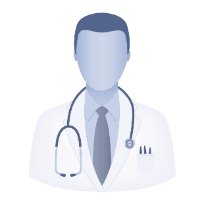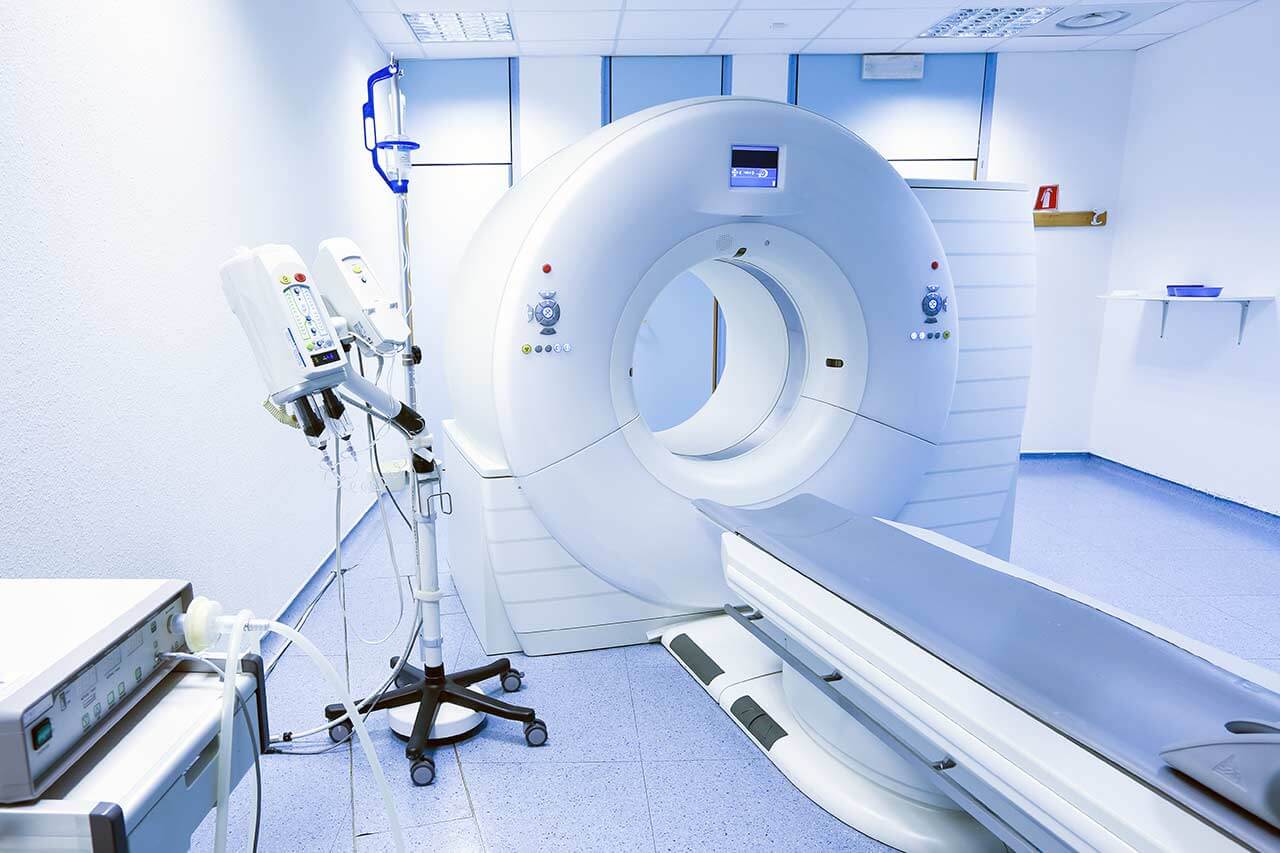
The program includes:
- Initial presentation in the clinic
- clinical history taking
- physical examination
- review of medical records
- laboratory tests:
- complete blood count
- general urine analysis
- biochemical analysis of blood
- indicators of inflammation (CRP, ESR)
- indicators blood coagulation
- analysis of lung function
- CT/MRI of the chest
- ultrasound and x-ray examination of the chest
- preoperative care
- thoracic sympathectomy in order to excision of parts
of sympathetic nerve trunk - symptomatic treatment
- control examinations
- physiotherapeutic procedures
- orthopedic appliances
- the cost of essential medicines and materials
- nursing services
- full hospital accommodation
- explanation of future recommendations
Required documents
- Medical records
Service
You may also book:
 BookingHealth Price from:
BookingHealth Price from:
About the department
According to the Focus magazine, the Department of Adult and Pediatric Thoracic Surgery at the University Hospital Heidelberg ranks among the top German departments in the treatment of lung cancer!
The department offers the full range of diagnostics and treatment of diseases of the thoracic organs. The department is among the largest and oldest medical facilities of this kind in Europe. The doctors of the department mostly have to deal with diseases, such as lung cancer, lung metastases, pleural mesothelioma, sarcoma, myasthenia gravis, pulmonary emphysema, and thoracic defects. For the achievements in the field of lung cancer treatment, the department received a certificate from the German Cancer Society. The department is headed by Prof. Dr. med. Hauke Winter.
More than 2,300 surgical interventions of varying severity are performed here annually. The operations are performed using the very latest technologies available in this field, for example, video-assisted thoracic surgery, thoracotomy, laser surgery, robotic interventions using the innovative DaVinci robotic system. In the diagnostics of oncopathology of the thoracic organs, each clinical case is considered at regular interdisciplinary boards. The doctors cooperatively develop the optimal treatment strategy.
The main clinical focuses of the department include:
- Diagnostics and treatment of lung cancer
- Surgical treatment (bilobectomy, pneumonectomy)
- Chemotherapy
- Radiation therapy
- Radiofrequency thermal ablation
- Diagnostics and treatment of lung metastases
- Minimally invasive video-assisted thoracoscopy
- Laser interventions
- Radiofrequency ablation
- Diagnostics and treatment of pleural effusion (exudative pleurisy)
- Diagnostics and treatment of pleural empyema
- Diagnostics and treatment of pleural mesothelioma
- Multimodal therapy
- Chemotherapy
- Radiation therapy
- Correction of thoracic wall deformities in children (Nuss procedure)
- Pectus excavatum
- Pectus carinatum
- Diagnostics and treatment of tracheal diseases (for example, tracheal stenosis)
- Laser treatments
- Resection of the affected segment
- Diagnostics and treatment of pulmonary emphysema
- Diagnostics and treatment of thymus gland
- Diagnostics and treatment of myasthenia
- Other medical services
Curriculum vitae
Professional Career
- 8/2107 Chief Physician of the Department of Adult and Pediatric Thoracic Surgery, University Hospital Heidelberg.
- 2011 - 2017 Head of the Surgical Section, lung transplantation.
- 2008 - 2017 Leading Senior Physician of the Center for Thoracic Surgery Munich, Ludwig Maximilian University of Munich, Grosshadern Hospital.
- 2008 - 2017 Deputy Head of the Department of Thoracic Oncology.
- 2007 Senior Physician, Department of Surgery, Grosshadern Hospital.
- 2007 Specialization in Thoracic Surgery.
- 2005 Acting Head Physician in the Department of Thoracic Surgery, Grosshadern Hospital.
- 2005 Additional qualification in Emergency Medicine.
- 2004 Medical Specialist in Surgery.
- 1997 - 1999 Research Fellow, E.A. Chiles Research Institute, W. Franz Cancer Center, Portland, Oregon, USA (Prof. Bernard A. Fox), Oncoimmunology.
- 1991 - 1997 Assistant Physician, Department of Surgery, Grosshadern Hospital, Ludwig Maximilian University of Munich.
- 1985 - 1990 Study of Human Medicine, Ludwig Maximilian University of Munich.
- 1983 - 1985 Study of Human Medicine, University of Giessen.
Research Activities
- 2015 Appointed as a Visiting Professor at the Ludwig Maximilian University of Munich.
- 09/2009 Venia docendi in Surgery, Ludwig Maximilians University of Munich.
- 2006 University didactic training course, Munich-Harvard Alliance for Medical Education.
- 04/2004 Habilitation in Surgery, Ludwig Maximilian University of Munich. Subject: "Researches of the mechanisms of action of tumor-specific T-cells".
- 1997 Doctoral thesis defense, Department of Endocrinology, Ludwig Maximilian University of Munich. Subject: "The effect of transforming growth factor beta (TGF-β) on the growth and function of isolated pig thyroid follicles".
Memberships in Professional Societies
- German Society of Thoracic Surgery (DGT).
- German Society of Surgery (DGC).
- Society for Immunotherapy of Cancer (SITC).
Honors and Awards
- 1998 Earle A. Chiles Research Prize, Chiles Foundation.
- 2007 Georg Heberer Award.
- 2007 Poster Award of the German Society of Thoracic Surgery.
- 2011 Glasgow City Prize of the European Society for Organ Transplantation.
Photo: (с) depositphotos
About hospital
According to Focus magazine, the University Hospital Heidelberg ranks among the top five hospitals in Germany!
The hospital is one of the most advanced and reputable medical institutions not only in Germany but throughout Europe. There are more than 43 specialized departments and 13 medical institutes which cover all fields of modern medicine. A distinctive feature of the hospital is the presence of unique therapeutic methods for the treatment of complex and rare clinical cases.
Due to successful clinical practice, the hospital has been holding leading positions in the international medical arena for many years. The basis for this popularity is the combination of the very latest technologies, competent specialists, and active research activities, which allows introducing of revolutionary diagnostic and treatment methods, which save lives.
In addition to the outstanding medical achievements, it is worth noting a particularly friendly and pleasant atmosphere, and respectful attitude towards the patient. Both doctors and nursing staff make every effort to meet all the needs and wishes of the patient, pay due attention to each clinical case, and have personal communication with the patient, which contributes to a positive treatment result.
Photo: (с) depositphotos
Accommodation in hospital
Patients rooms
The patients of the University Hospital Heidelberg live in comfortable single and double rooms designed in bright colors. Each room is equipped with an ensuite bathroom with a shower and toilet. The patient rooms are quite spacious, they have a table with chairs for receiving visitors. Roomy wardrobes are provided for storing personal belongings. It is possible to connect to the Internet. In addition, the hospital offers enhanced-comfort rooms with a safe, refrigerator, and upholstered furniture. Patients have 24-hour access to the services of medical personnel.
Meals and Menus
The patient and his accompanying person have a daily choice of three menus. If you for some reason do not eat all the products, you will be offered an individual menu. Please inform the medical staff about your dietary preferences prior to the treatment.
Further details
Standard rooms include:
Religion
The religious services are available upon request.
Accompanying person
During the inpatient program, an accompanying person may stay with you in a room or hotel of your choice.
Hotel
During the outpatient program, you may live in a hotel of your choice. The managers will help you choose the most suitable options.
The hospital offers a full range of laboratory tests (general, hormonal, tests for infections, antibodies, tumor markers, etc.), genetic tests, various modifications of ultrasound scans, CT scans, MRI and PET / CT, angiography, myelography, biopsy and other examinations. Treatment with medications, endoscopic and robotic operations, stereotaxic interventions is carried out here, modern types of radiation therapy are also used. The hospital offers patients all the necessary therapeutic techniques.
- Endovascular treatment of liver pathologies with LigaSureTM, Ultracision® and Habib®-Sealer devices
- Correction of chest deformities in children (Nass operation)
- Minimally invasive direct coronary artery bypass grafting
- Replacement of ascending aorta (David procedure)
- Operations using the da Vinci robotic system
These are primary lung tumors and metastases in the lungs, benign and malignant liver pathologies, thyroid pathologies, gastroesophageal reflux disease, heart rhythm disturbances and heart failure, infertility, fibromyalgia, damages and pathologies of large joints, polyneuropathy and other diseases.
- Thoracic surgery
- Cardiac surgery
- Urology
- Orthopedics and traumatology
- Obstetrics and gynecology
The hospital's team consists of more than 13,000 highly qualified employees




